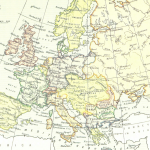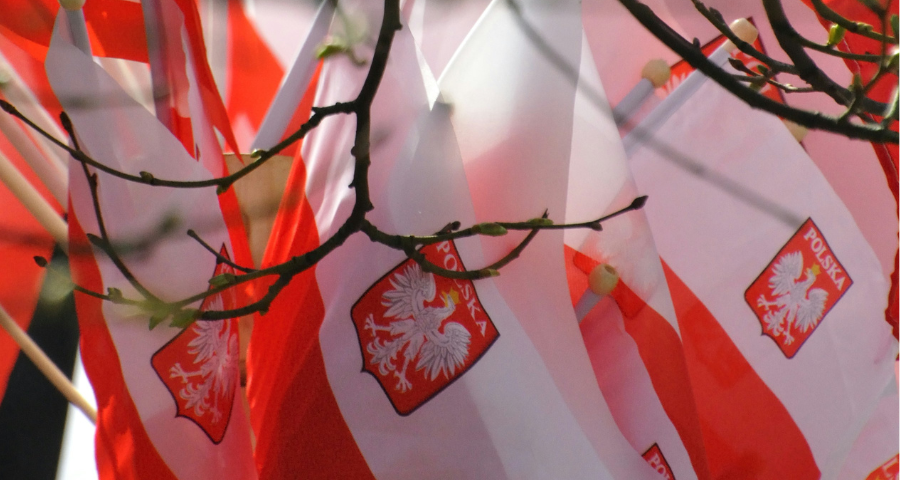
New Covenant aims to ‘reset’ UK charities’ relationship with Government
July 30, 2025
Transnational Giving Europe enters ‘new chapter’ and looks to growth as part of Philea
August 6, 2025For August’s Spotlight on Civic Space, Robert Kawałko, president of the Polish Fundraising Association (Polskie Stowarzyszenie Fundraisingu) describes the situation in Poland where democracy is becoming ‘increasingly procedural’, and NGOs find themselves operating in a climate of uncertainty.
Poles share the same concerns as other Western European countries. Political polarization of society, the largest-ever wave of migrants from around the world, fears of new technologies, and difficult intergenerational dialogue – these are topics that constantly recur in conversations, social media, and public media. Add to this the three-year-long war in Ukraine and the question of whether Poland will also have to defend its independence.
Democracy in regression?
For almost a decade, Poland has remained one of the main examples of the erosion of liberal democracy in the European Union. Although the country regularly holds elections, the space for free public debate, independent institutions, and civic participation is gradually shrinking. Recent events since the 2025 presidential election shed further light on this phenomenon.
Procedural externals
Poland still meets the basic formal criteria of democracy: it holds elections, there is multi-party democracy, and society uses the internet and media freely. However, as observers note, democracy is becoming increasingly procedural – limited to electoral rituals, while weakening oversight institutions, civil rights, and real public influence on reality.
The recent presidential election, which ended with a narrow majority for the candidate supported by the right-wing opposition, sparked a wave of protests and accusations of irregularities. Although no systemic abuses were proven, the scale of mutual undermining of legitimacy and the use of conspiratorial language on both sides of the political spectrum are symptoms of a deeper crisis of trust – not only in political rivals, but in the democratic process itself. Incumbent Prime Minister Donald Tusk made an unsuccessful attempt to persuade the Marshal of the Sejm to prevent the swearing-in of the new president. The term “coup d’état” is used daily across all instances, and the prosecutor’s office has launched an investigation into the matter. In short, a war between two tribes is underway. We know this from many countries around the world. There is even a view that nations no longer exist, replaced by two warring civilizations. Institutions in chronic conflict.
The persistent conflict between the government and a president elected from a different political camp deepens the phenomenon of a “blocked state” – a situation in which institutions are unable to effectively cooperate. This blocks key reforms and increases systemic tensions. Authorities accuse each other of violating the constitution, further undermining the authority of institutions such as the Supreme Court and the National Council of the Judiciary.
The atrophy of public media and civic discourse
Public media in Poland, for years governed by the political lines of successive governments, have ceased to function as impartial sources of information. After the centrist-liberal camp took power in 2023, attempts were made to implement a “media reset,” but these actions were often as politically motivated as the previous interventions. As a result, both right-wing and liberal voters increasingly perceive the media as a propaganda arm of the party. The public’s attention is shifting to the internet, where more and more channels with millions of followers are flourishing. The tentacles of political parties do not reach there, and the fight for reach forces them to speak with greater purpose.
Meanwhile, non-governmental organizations, especially those working on human rights, climate, and migrant issues, continue to operate in a climate of uncertainty. After years of open hostility from the conservative government, they now have to cope with the lack of a long-term cooperation strategy from the new authorities and limited access to stable funding. Polish NGOs already know that if they become too close to the ruling party, they will face lean years after the change of power. Therefore, few organizations are willing to take sides. Most choose neutrality, focus on their mission, and avoid conflict.
Civil society doesn’t give up
Despite these challenges, Poland still boasts an active civil society, independent judges, vibrant digital media, and local grassroots initiatives. Democracy in Poland continues to balance between formal pluralism and an increasingly polarized, distrustful society.
The shrinking democratic space in Poland is not a spectacular decline, but a gradual degradation of trust, cooperation, and informed debate. In a world of intense polarization, fragile institutions, and the politics of conflict, democracy must regain its original meaning. Poles, like many other nations, must learn to respect differing beliefs. They must learn to create a diverse community that can work toward common goals and respect the will of the majority. Poles have always been able to unite when faced with a common enemy – this was true during wars; this was true under communism. Back then, all quarrels were secondary, and people were able to reach an understanding. Now the challenge is to make this happen in times of peace.
Picture by Natalia Gasiorowska on Unsplash





